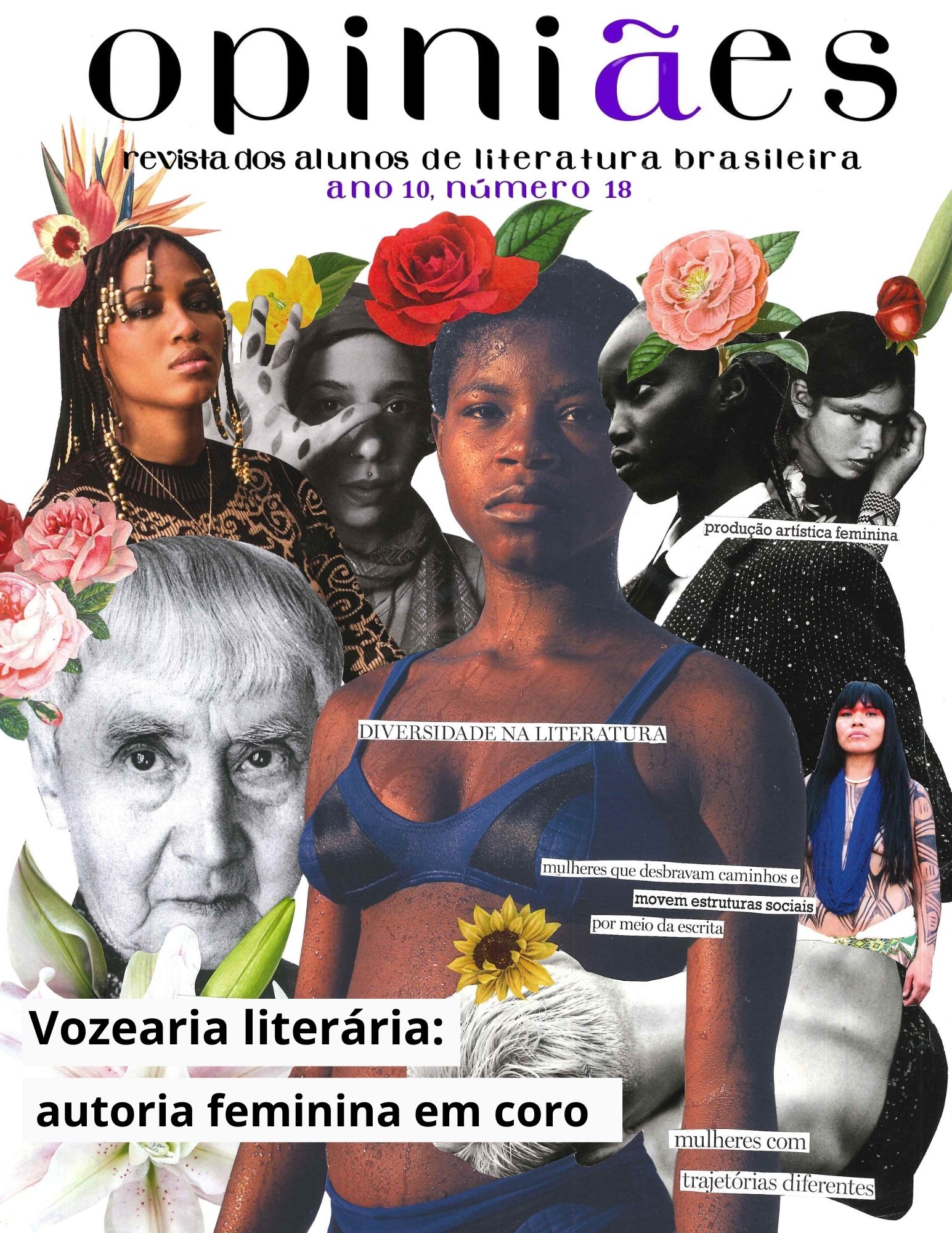The Autobiographical Writing of Maura Lopes Cançado as a Form of Resistance to the Early Disappearance of Women in Brazilian Society
DOI:
https://doi.org/10.11606/issn.2525-8133.opiniaes.2021.181332Keywords:
Autobiography, Maura Lopes Cançado, Simone de BeauvoirAbstract
The present article analyzes the autobiographical daily Hospício é Deus: diário I (1965), by Maura Lopes Cançado, from the concepts of condition and ambivalence subject-object present in O segundo sexo (2009), by Simone de Beauvoir. In order that the analytical path could be made viable, Philippe Lejeune (2008) was used as the main theoretical reference in the concept of autobiography. The analysis was divided into three moments, the first being aimed at contextualizing the concepts of Beauvoir and the development of his autobiographical writing. Subsequently, a dialogue begins between the discussions proposed in O segundo sexo and the genesis of autobiography of Maura Lopes Cançado’s life, with an emphasis on the role of first-person narratives in transforming her condition in the social context to which she was inserted. Finally, autobiographical writing is presented as a form of resistance of the female perspective in a patriarchal society. Thus, it is intended to demonstrate how the publication of the autobiographical daily Hospício é Deus: diário I start off the female autobiography in this format and context in Brazil, also marking the interruption of superficiality and futility imposed by patriarchy on first-person narratives from the female perspective.
Downloads
References
BEAUVOIR, Simone. Literatura e Metafísica. In: O existencialismo e a sabedoria das nações. Tradução de Bruno da Ponte e Manuel de Lima. Lisboa: Editorial Minotauro, 1965.
BEAUVOIR, Simone. O segundo sexo. Tradução de Sérgio Milliet. Rio de Janeiro: Nova Fronteira, 2009.
CANÇADO, Maura Lopes. Hospício é Deus: diário I. São Paulo: Autêntica Editora, 2015.
COSTA LIMA, Luiz. História. Ficção. Literatura. São Paulo: Companhia das Letras, 2006.
CUSTÓDIO, Márcia Moreira. Literatura e loucura: a carnalidade da loucura de Maura Lopes Cançado em Hospício é deus. Dissertação (Mestrado em Letras/Estudos Literários), Universidade Estadual de Montes Claros, Minas Gerais, 2014.
KIRKPATRICK, Kate. Simone de Beauvoir: uma vida. São Paulo: Planeta do Brasil, 2020.
MEIHY, José Carlos Sebe Bom de. Carolina Maria de Jesus: emblema do silêncio. Revista USP: Direitos Humanos no Limiar do séc. XXI, n. 37, São Paulo, 1998.
LEJEUNE, Philippe. O pacto autobiográfico: de Rousseau à internet. Minas Gerais: Editora UFMG, 2008.
LEJEUNE, Philippe. L'autobiographie en France. 2. ed. Paris: Armand Colin, [1971] 1998a.
SMITH, Sidonie. Subjectivity, identity and the body: women’s autobiographical practices in the twentieth century. Bloomington and Indianapolis: Indiana University Press, 1993.
VOLCEAN, Tamiris Tinti. Narrativas autobiográficas: uma análise comparativa entre a obra Hospício é Deus: diário I (1965) e o documentário audiovisual Santiago (2007). Dissertação de Mestrado apresentada ao Programa de Pós-Graduação da FAAC (UNESP), 2019.
ZINANI, Cecil Jeanine Albert; POLESSO, Natalia Borges. Da margem: a mulher escritora e a história da literatura. MÉTIS: história & cultura, v. 9, n. 18, pp. 99-112, jul./dez. 2010.
Downloads
Published
Issue
Section
License
Copyright (c) 2021 Tamiris Tinti Volcean

This work is licensed under a Creative Commons Attribution 4.0 International License.
A revista Opiniães não exerce cobrança pelas contribuições recebidas, garantindo o compartilhamento universal de suas publicações. Os autores mantêm os direitos autorais sobre os textos originais e inéditos que disponibilizarem e concedem à revista o direito de primeira publicação, com o trabalho simultaneamente licenciado sob a Licença Creative Commons Attribution que permite o compartilhamento do trabalho com reconhecimento da autoria e publicação inicial nesta revista.



